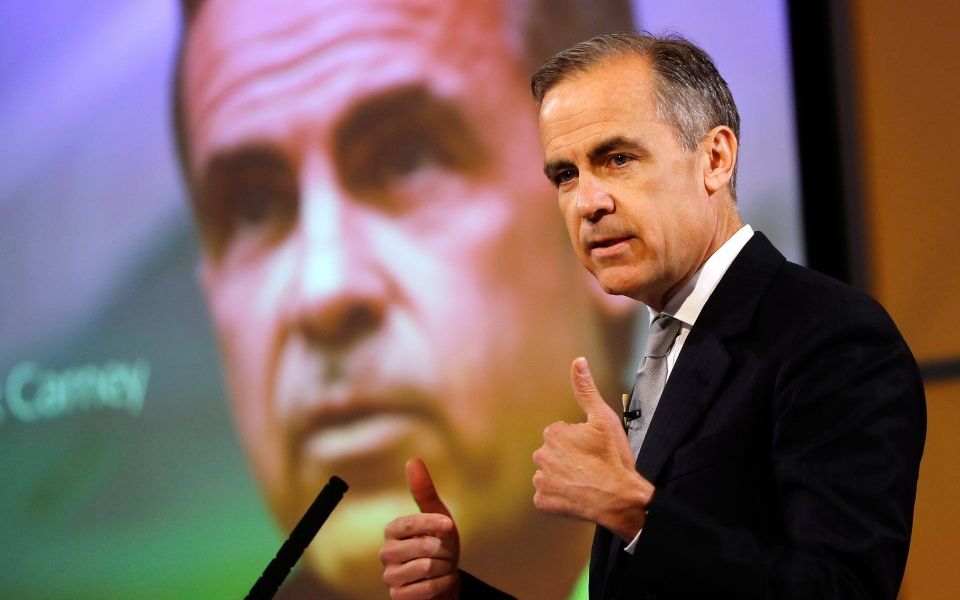Editor’s Notes: Time for some forward guidance on the next Bank of England governor, Labour loses a man of principle and Warren Buffett’s lunch date

Mark Carney’s first speech as governor of the Bank of England was on 28 August 2013, at a lunch co-hosted by the CBI and the Institute of Directors.
I was working for the latter at the time, and was leaning against the back wall with a glass of warm white wine in my hand as the new governor explained his policy of forward guidance. Three weeks before the speech, the MPC had announced that rates would not begin to rise until unemployment had fallen to seven per cent. “Our forward guidance provides you with certainty that interest rates will not rise too soon,” Carney said. He was right about that – the rate remained at 0.5 per cent, despite unemployment plummeting, for the next three years before being cut again in the summer of 2016.
It nudged back up to 0.5 per cent last November and then to 0.75 per cent last month – the first proper hike in nearly a decade. Over the years, Carney flirted with rate rises, continuing to offer his ‘guidance’ without ever following through. This saw him branded “an unreliable boyfriend” by a Labour MP on the Treasury Select Committee. Today, it isn’t the timing of rate rises that lends the governor an air of perpetual uncertainty, but the length of his tenure and timing of his departure.
The timetable for recruiting Carney’s successor has already slipped, but an advert will be appearing in The Economist soon. Earlier this week the Treasury was forced to deny rumours that Carney has been asked to stay on to 2020 – rumours that appeared, incidentally, in the gossip section of a newspaper edited by a former chancellor who appointed Carney in the first place.
It’s all getting a little messy, with former MPC member Andrew Sentance branding the situation “a shambles.” Meanwhile, potential successors are already laying the groundwork, with the hotly tipped regulator, Andrew Bailey, being noticeably more vocal in media interviews. Whether Carney deigns to stick around or not, he should consider offering some forward guidance on his future at Threadneedle Street.

Labour loses a man of principle
Labour MP Frank Field has quit the party with an extraordinary (and entirely accurate) attack on Corbyn and his top team. Veteran left-winger Field said Labour’s leadership is becoming “a force for antisemitism in British politics” and that senior figures were “doing nothing substantive” to address this. The reaction to Field’s resignation has been telling. Deputy leader Tom Watson, a man well aware of the fragile state of his party, described Field’s departure as “a serious loss to the party” that “reflects both the deep divisions in the party and the sense of drift engulfing us”. He said the news is “a wake-up call”. In contrast, the official response from Corbyn’s office was a one-line statement thanking the MP for his service. Corbyn’s outriders in the media were moving quickly to discredit Field. The Guardian’s Owen Jones all but denounced him as a traitor – saying he simply jumped before he was pushed. The truth is that in losing Field, Labour has lost a man of stature and principle. Sad times.
A lunch buffet with Warren Buffett
Each year, the billionaire chairman of Berkshire Hathaway, Warren Buffett, auctions off a lunch date for charity. This year it went for over $3m (£2.3m). Clearly, people are prepared to spend big in the hope of picking up some investment tips. For the rest of us, some Buffett wisdom appeared on Twitter earlier this week, with the man himself tweeting such gems as “don’t spend what you don’t have” and “stay healthy and fit”. Hundreds of thousands people liked and retweeted these inane nuggets, without realising that the account was a fake.
Do you believe in the stock market?
In an interview with the Sunday Telegraph, the actor Brian Cox was asked if he invests in the stock market. “No,” he said, “I don’t believe in that.” Moneyweek Editor Merryn Somerset Webb was less than impressed. “Don’t believe in what?” she asked on Twitter, “creativity, shareholder capitalism, wealth sharing?” Cox went on: “Property seems to me the most sensible thing.” No word on how many properties the left-wing Hollywood star has, but we can assume it’s more than a couple.
